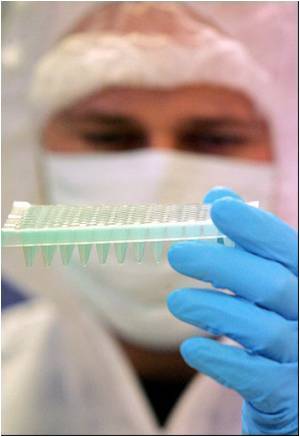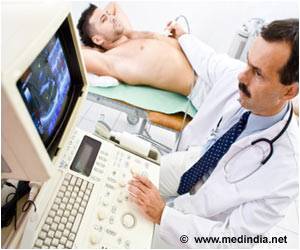A patient's immune response may provide better and more rapid insights into the cause, prognosis and severity of certain bacterial infections than conventional tests.

Approximately 11% of kidney failure patients on dialysis receive peritoneal dialysis, which is home-based. Peritoneal dialysis is generally perceived as less burdensome and as effective as clinic-based hemodialysis, but infections can cause treatment failure and even patient death if not detected early. Unfortunately, current tests for infections—which use microbiological culture methods—are slow and inefficient. Fear of infection is the major reason for patients and their doctors to opt against peritoneal dialysis despite its otherwise potential clinical benefit.
Matthias Eberl, PhD, Nicholas Topley, PhD (Cardiff University, in the UK), and their colleagues wondered whether assessing dialysis patients' immune responses might help in the diagnosis of bacterial infections. They reasoned that the human body is capable of a rapid, sensitive, and specific detection of a broad spectrum of microbes, and each pathogen stimulates unique aspects of the immune system, essentially leaving a distinct "immune fingerprint."
For their study, the researchers recorded a range of microbiological, immunological, and clinical parameters from patients on the day they were admitted to the hospital for peritonitis, an infection of the abdominal cavity. "Our goal was to identify unique fingerprints that are associated with certain groups of pathogens and/or outcome that can be exploited for diagnostic and prognostic purposes," said Dr. Eberl.
The team found that certain immune markers correlated with microbiological test results and robustly predicted the presence of infection. Furthermore, particular combinations of these biomarkers also predicted the nature of the causative pathogen—discriminating between Gram-negative and Gram-positive infections—and identified patients at an elevated risk of experiencing treatment failure.
"To our knowledge, this is the first study in acutely infected patients exploiting the notion that microorganisms display distinct sets of pathogen-associated patterns and interact with the immune system in a unique and specific manner for diagnostic purposes," said Professor Topley. In addition to potentially improving the diagnosis and treatment of peritonitis in peritoneal dialysis patients, the findings may also be applicable to other local and systemic infections. Dr. Eberl added that "the data suggest that it may be possible to develop a simple fingerprint-based point-of-care test that can be used by a general practitioner—at the bed-side or at home—to ensure that the right treatment is given to each patient."
Advertisement
Source-Eurekalert















